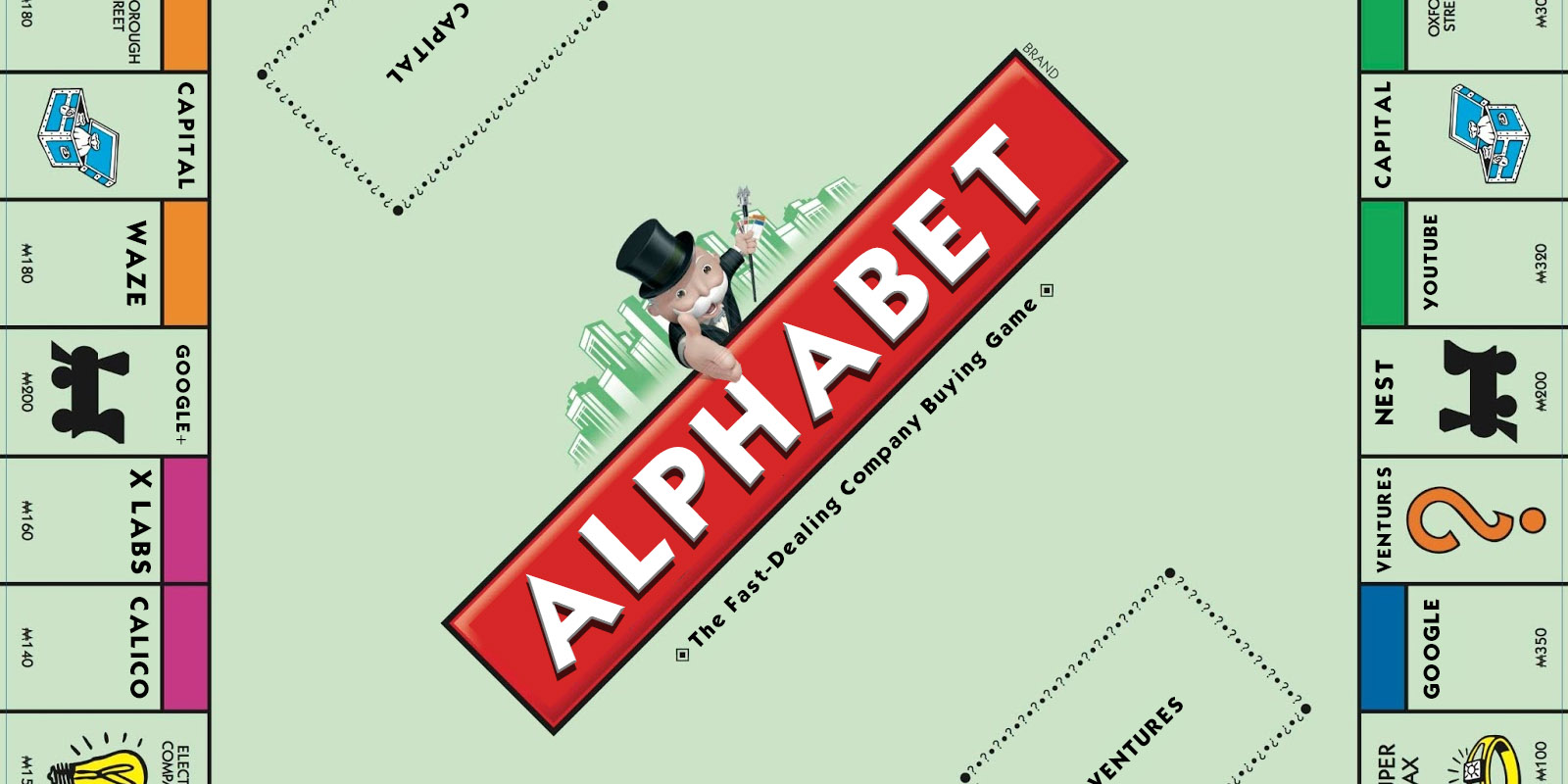Patriot Beginners’ Guide to Ending Internet Monopolies
Does this sound normal to you?
From Wikipedia:
“Google is a computer software and a web search engine company that acquired, on average, more than one company per week in 2010 and 2011.”
It essentially bought more than 1 company every week for 2 years straight!!!
In Part 1, we discussed Alphabet Inc and its banner company – Google – and their participation in monopolizing the tech industry. The last article pointed out how Silicon Valley has been working with governments to collect and hand over mass amounts of your personal data, while censoring conservatives and patriots – literally on both ends!
Google and the other top SE’s use algorithms to censor content creators (decreasing the amount of available searchable data going into the system) as well as those doing the searches (the info you are actually looking for can be buried under pages and pages of returned results, or not even available. You’re often provided with politically biased info sourced from an artificially created pool of content.
Knowing is half the battle – you can sidle along on life’s information super-highway in a soft-skinned bullet magnet, or upgrade to an MRAP Cougar armed with a Crows 2.
To help appreciate the colossal scope of this technopoly we’ll break down some key terms. First off, we need to understand the difference between a search engine and a web browser.
A web browser is the framework software that allows you to “plug in” your choice of search engine. It takes you to the launch-point, connecting you to the internet. Browsers have now evolved from the original choice – Internet Explorer – and they’re found on all devices, from phones and ipads, to laptops, tablets and desktops. Some other examples include:
Safari, Firefox, Android (Google) and Chrome (also Google)
A search engine (SE) is the compatible software structure, or “plug-in” for your web browser that launches your query. The information it has indexed from registered websites – as well as other databases and sources – allows search engines to turn your guesses and questions into specific answers, documents and videos. The most relevant choices from all over the world are returned in the search results section, under the search bar.
Examples: Google, Start Page, Duck Duck Go, Yahoo, Bing, Yandex
Because of Alphabet and Google’s proclivity to collect massive amounts of data, and sneaky tactics like using multi-page user agreements that would take hours read, allowing access to unrelated programs on your phone, and modifying search results, popular SE alternatives have started really taking off in recent years.
Duck Duck Go is one such company, allowing you roughly the same search results, minus the invasion of your privacy. They don’t collect or store your data on their site or allow tracking cookies to see where you go after leaving their site. Although certain organizations have other ways to obtain your data (https://steemit.com/informationwar/@canusapatriots/ex-nsa-whistleblower-repeatedly-warned-us-of-back-door-exploits-like-meltodown-and-spectre) the fact that many of these new SE models don’t save your IP address or your searches is preferable to the business model of their predecessors – collect everything!
THE PRIVACY MODEL
Other companies that got in on the “Increased Privacy” business model are IxQuick’s European model and their North American cousin, Start Page.
From Ixquick’s European SE:
https://www.ixquick.eu/eng/privacy-policy.html#hmb
“When you use Ixquick, we do not record your IP address, we do not record the browser connected with your search (Internet Explorer, Safari, Firefox, Chrome etc.), the computer platform (Windows, Mac, Linux, etc.) connected with your search, and we do not record your search words or phrases themselves.
This zero personal data collection policy protects your privacy, since your IP address, browser, and platform information can be combined with other data to uniquely identify your computer, your location, or you."
Here’s a sample list of the most popular Privacy Friendly SE’s:
Start Page.com
IxQuick.eu
DuckDuckGo.com
Quant.com
Dogpile.com
Yippy.com
Continue your up-armored journey in Part 3, coming tomorrow, where you’ll receive more tips on staying safe and more info on who deserves your special attention. It’s a target-rich environment – we’ve got a full tank and plenty of ammo!
Part 2 Sources:
https://en.wikipedia.org/wiki/Alphabet_Inc
http://www.ares-project-blog.com/kodi-add-on-reviews/private-search-engines/
Consumerwatchdog.org
Thenextweb.com
Military-informer.narod.ru
Tumblr.com




nice post
Curated for #informationwar (by @openparadigm)
Relevance:Break the Monopoly
monopoly involves force (gubberment)
a large market share is not a monopoly as long as force (regulations) is not the reason why.
The recent use of the word monopoly is incorrect..
...and thus diminishes the credibility of those using it incorrectly.
So, you're saying there is no gubberment involvement in said multi-conglomerate? That is funny. What would you classify them as, then? Does DeepMind have a competitor now? What is your opinion on their acquisition of Predictive Planning and how it relates to all of the personal data they've been collecting? Who are their partners in the black companies listed on Wikipedia. Google that.
Reading comprehension is a thing.
you should try it some time.
it's remarkably enlightening.
in which I said
monopoly involves force (gubberment)
a large market share is not a monopoly as long as force (regulations) is not the reason why
I'm very clearly saying that there IS ....gubberment involvement in said multi-conglomerate?
That's funny that you missed it.
To repeat:
Monopolies cannot exist in a free market. It takes government force to allow them to exist. A LARGE market share, on the other hand, is NOT a monopoly...it merely indicates that the business is doing a GOOD JOB...in the view of the market.
After a history of being excessively polite, and upvoting your content, you threw the credibility insult. If you wrote as well as you insulted people you'd be on a desert island somewhere, off the grid. Anyways, check out the article on Google Monopoly, featuring details on Google's monopolistic practices - published by the Guardian. They're pretty big.
You clearly have a narrow view of what "monopoly" means. Look in a dictionary, post 1955. And do some actual research.